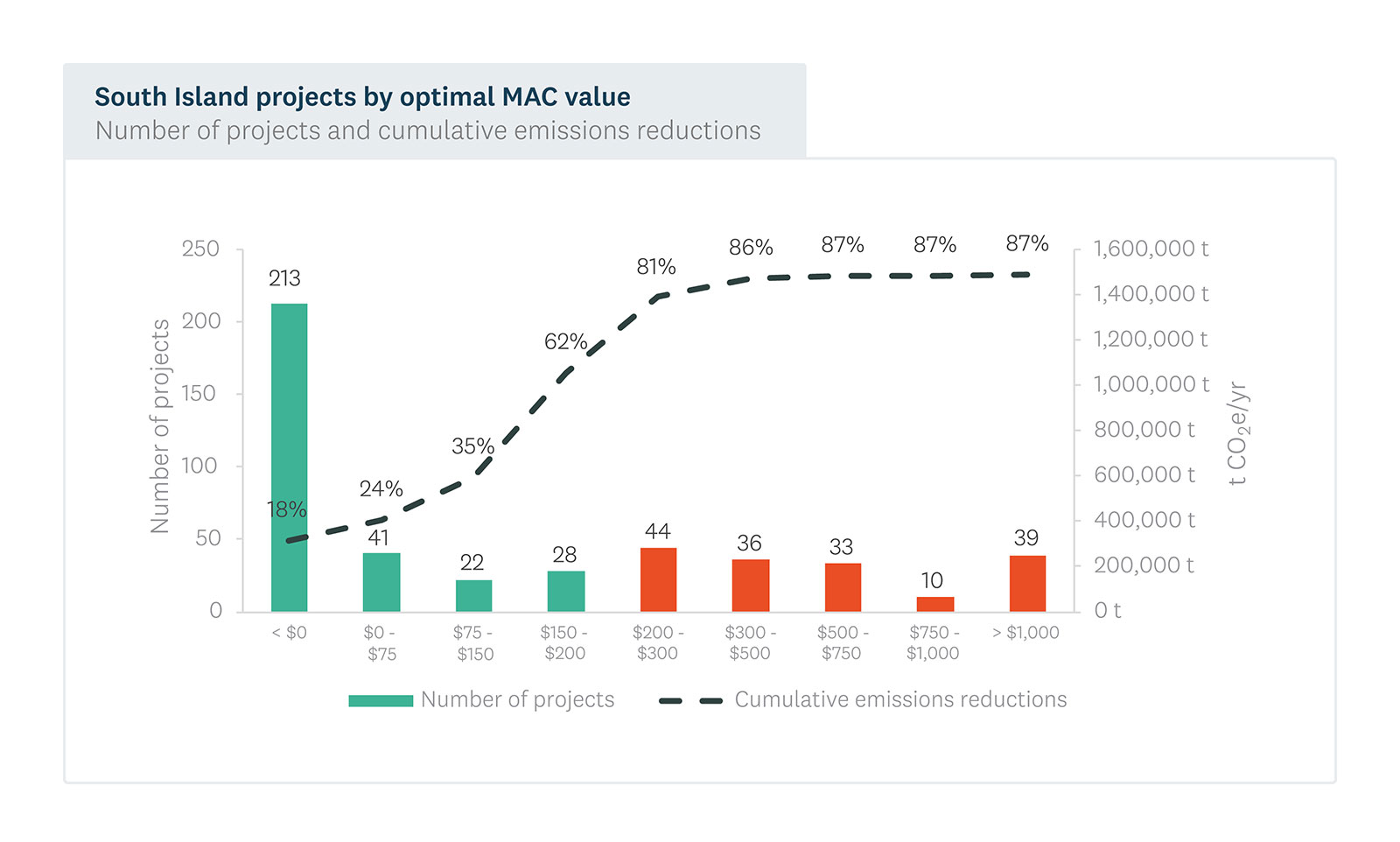South Island RETA Report
EECA’s Regional Energy Transition Accelerator (RETA) programme has delivered six individual reports covering the entire South Island, wrapping up phase one of activity in the southern regions.
The South Island RETA report combines the forecasted and mapped stationary heat energy demand at the medium to large end, as well as renewable energy supply to support the acceleration of low emission projects across South Island.
South Island process heat sites account for nearly 80% of New Zealand's coal consumption*, and 11% of LPG consumption. The emissions from these sites make up around 28% of New Zealand's total process heat emissions and over 5% of total energy emissions.
*Coal for energy purposes, excluding coal used for electricity generation
About the South Island RETA
The South Island RETA report consolidates findings from regional reports in Nelson Marlborough Tasman, North Canterbury, Mid-South Canterbury, West Coast, Otago, and Southland.
The result is a detailed analysis of the South Island’s energy demands and renewable supply options for medium to large businesses. A total of 273 sites – spanning the dairy, meat, industrial and commercial sectors are covered by the South Island RETA. These sites either have process heat equipment larger than 500kW or are sites for which EECA has detailed information about their decarbonisation pathway.
The report identifies opportunities for these sites to switch to renewables, emphasising cost reduction and infrastructure investment aligned with decarbonisation goals. Across the sites, there are nearly 600 individual projects covering demand reduction, heat pumps and fuel switching. So far, nearly 100 fuel switching projects have been completed or confirmed by South Island process heat users.
Highlights from the South Island report:
- Commercial decision-making based on marginal abatement cost or ‘MAC optimal’ pathway could accelerate emissions reductions, reducing cumulative long-lived emissions by 6.2Mt between now and 2037 compared to a 'business as usual' pathway.
- Nearly 1Mt CO₂e per annum of process heat emissions reductions could be economic within the next 15 years.
- Energy efficiency could reduce the use of fossil fuels by 32% to 39% in the South Island RETA.
- Completed or confirmed fuel-switching projects will deliver a 29% reduction in process heat emissions compared to 2022.
- Demand reduction and thermal efficiency projects could further reduce emissions by 25%.
- The MAC Optimal pathway would create new demand for nearly 5.7M tonnes of woody biomass over the next 13 years, worth between $525M to $604M over that period.
- Annually the South Island’s use of woody biomass for bioenergy would more than double, fully consuming available and currently unutilised processor and harvesting residues and minor species.
Read the report
Download the South Island RETA report for a detailed analysis of the South Island’s energy demands and renewable supply options for medium to large businesses.
The completion of these RETA regional reports now allows us to obtain a new and comprehensive picture of the entire South Island, from a process heat decarbonisation perspective.
Next steps
EECA is happy to hear from anyone wanting to talk about any of recommendations in the South Island RETA report.
Email RETA@eeca.govt.nz or oliver.howitt@eeca.govt.nz with any questions.

